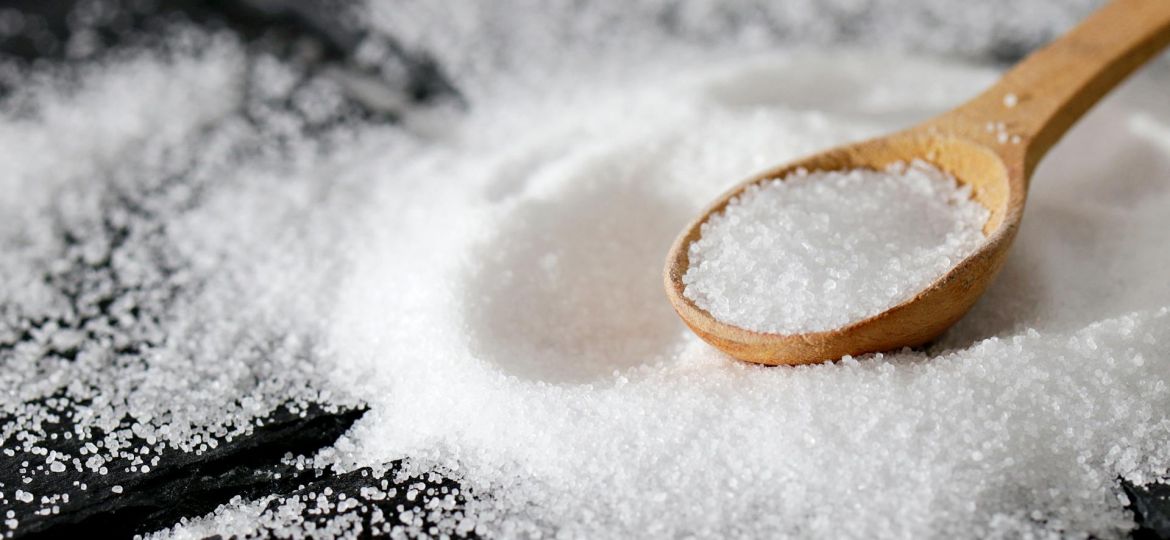
Salt, also known as sodium chloride, is a mineral that occurs naturally in many foods. It is often used as a seasoning to improve the taste of food. Salt dissolves easily in water and has a crystal-like structure.
WHAT DOES SALT DO IN THE BODY?
Salt plays an important role in the regulation of fluid balance in the body and the functioning of muscles and nerves. However, the body only needs small amounts of salt to function normally.
Salt contains sodium and sodium is naturally present in the body. It regulates the amount of water in the body and helps in the transmission of nerve impulses and muscle contractions. With high salt intake, sodium levels in the blood increase. This causes our body to retain more fluid to dilute the sodium and the extra fluid leads to higher blood pressure.
High blood pressure can cause problems in the cardiovascular system – the heart and blood vessels. The hard and tense blood vessels make the heart work harder to pump blood through the body. This can eventually damage blood vessels and cause atherosclerosis, which can lead to heart failure, heart attack or stroke.
That’s why many health organizations, including the World Health Organization, recommend reducing salt consumption to less than 5 g per day (about a teaspoon). This helps lower the risk of high blood pressure and can contribute to a healthy cardiovascular system.
WHY IS TOO MUCH SALT DANGEROUS?
Too much salt in our body can increase blood pressure, which increases the risk of cardiovascular disease. High salt intake can also contribute to kidney problems.
In addition, a high salt intake is often associated with obesity, because salty foods are often high in calories.
HOW DO YOU REDUCE SALT IN YOUR DIET?
- Use herbs and spices instead of salt to improve the taste of food.
- Cook yourself and avoid ready-made meals and snacks.
- Try to find salt-free snack alternatives, such as raisins or unsalted nuts.
- Slowly reduce the use of salt to allow your taste buds to adjust.
- Use less salty ingredients, such as capers and olives.
- Experiment with different types of vinegar and lemon juice to add flavor.
- Read labels to make sure you choose foods with low salt content.
- Choose low-fat or low-fat dairy products instead of salty cheese.
- Make your own sauces and soups without salt and add as little salt as possible at the end of the cooking process to preserve the taste.
- Eat more fresh fruits and vegetables that are naturally low in salt.
- Avoid added salt in supplements and medications.
- Limit meat and fish to once a day and choose lean or white varieties.
- Rinse canned foods to remove excess salt.
- Make your own dressings and marinades so you can control the amount of salt.
- Choose unsalted butter and margarine.
- Limit the use of ketchup, mustard and other salty seasonings.
- Eat vegetarian once a week to reduce salt intake.
- Drink more water to regulate the fluid balance in the body.
- Ask for a salt-free option at restaurants.
- Reduce the amount of salt in recipes by 25% to 50% and use other seasonings to improve the taste.
With these tips you can reduce salt in your diet and contribute to a healthier lifestyle.

